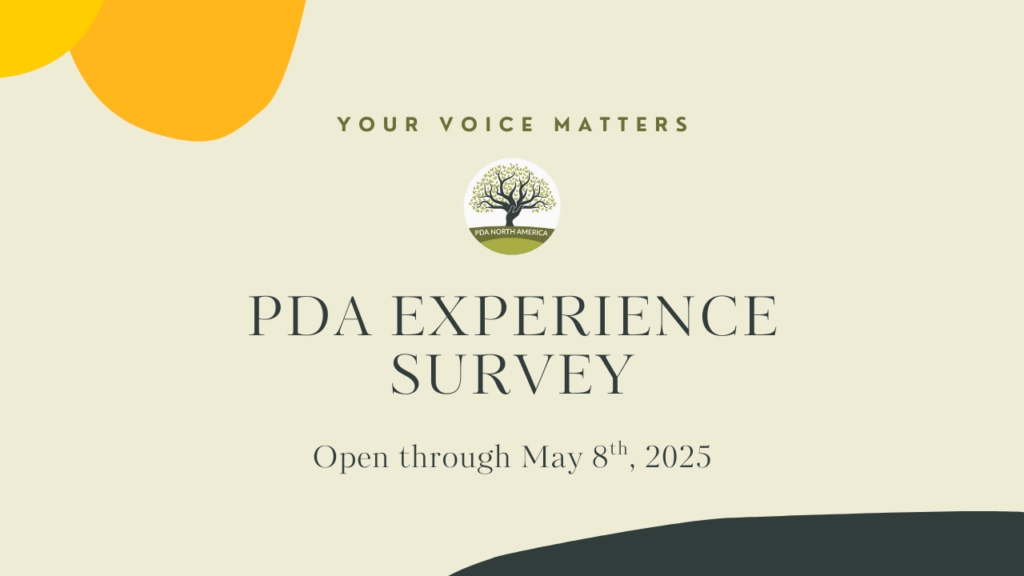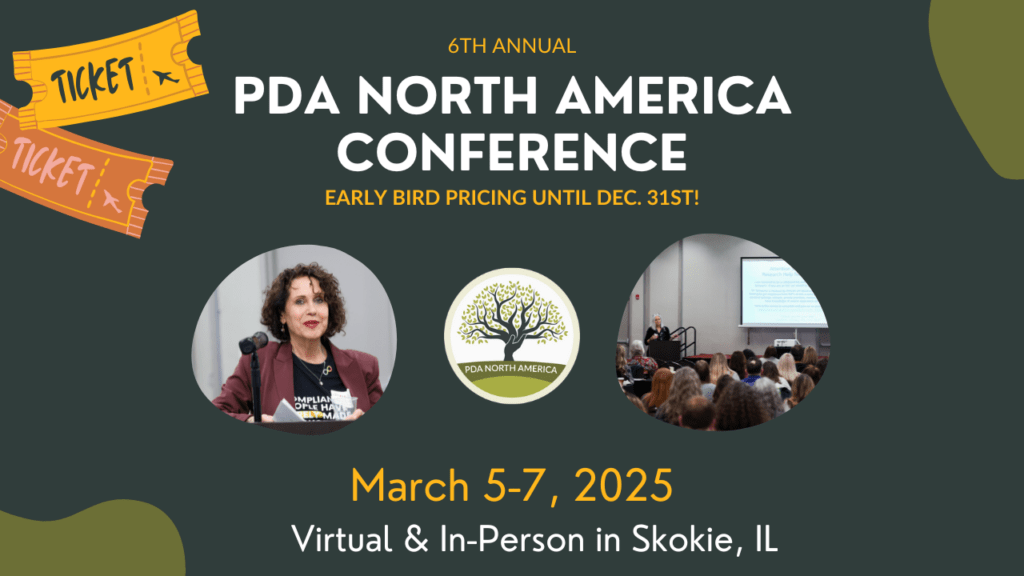By Lindsay Flanagan of Hive Parents
1: Let Kids Initiate Conversation
Maybe this one is easy for you… but it isn’t for me! I’m naurally more chatty and generally up for conversation.
I used to struggle to understand that my PDA family members perceived even casual conversation as a demand, but I got it once I started thinking about how I felt after a long, tiring day at work. Usually the last thing I want to do is talk, at least not without some significant downtime first to reset my brain.
So I started practicing saying less. Instead of saying, “Do you want me to fill your water bottle?” I just started doing it, because I always do it and the question didn’t need asked. Instead of saying, “Did you have fun?” when my PDA kid came home from playing at the neighbors, I started giving him a warm smile and just saying, “Hi.” Now, two years in, I’ll often say, “I’m happy to see you.” But I still wait for him to initiate futher conversation.
If you’re looking for two particularly impactful times to practice this, try when they first wake up in the morning and when they first get home from school (or any activity that requires a high level of masking.)
2: Low Pressure Opportunities for Insight Building
It can be really hard to be in a place of chronic dysregulation and feel like you’re never going to move the needle towards your child having some understanding about their brain. But I think there are some great language based opportunities to dip your toes in the water of insight building!
This isn’t something you want to test out when your kid is in a full-blown meltdown or panic attack. When the thinking part of the brain is completely offline there’s no use wasting anyone’s time trying to engage with language.
But in those times when your child is “sassy” or “rude” (which we know is the product of a dsyregulated nervous system) you can try out something like, “I don’t think you meant it this way, but you sounded angry when you asked me for a snack.”
Maybe your kid is still in major protection mode and they respond, “Yeah? I was angry. Because you suck.” But in moments of lower dysregulation or as they start to live in that logical part of their brain more and more, I think you’ll start hearing, “Oh. I didn’t realize I sounded angry,” or even, “Well, I’m feeling mad. But I didn’t mean to sound that way.”
The biggest draw of this approach in my opinion, is that we’re signaling to our kid that we assign positive intent to them. We don’t think they mean to be rude. We don’t think they’re a mean or bad person. It’s just an observation for them to ponder.
3: Backing Off Can Be Your Best Friend
How many times has your kid asked you for an apple and when you bring it to them they shriek, “I DIDN’T ASK FOR AN APPLE.” Your instinctual reply (and mine) is likely, “Are you serious? You absolutely did…”
Whether this is truly a misunderstanding with a kid with commuincation differences or a subtle act of equaliazing, I’m not sure it matters much in the moment. We can choose to engage in a battle of wills at this point, or just take the loss and move on.
I’ll be honest, I’ve chosen the battle of wills more times than I care to admit, because I’m human, and this is hard. But I promise you that there’s no way to use logic on a brain in survival mode, and everyone’s regulation will be better for dropping it. You might just move on, or give a simple, “Oh maybe I misunderstood. I thought you said apple.”
Ok. Great, Lindsay. But we can’t do this forever. How do I teach my kid that their words matter? That people’s time matters? I know… I really do get it. This is where trust in the long game comes in. That understanding how brains work and develop is going to get us to this skill with time and patience.







